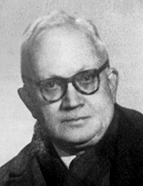

Robert Ricard always looks very closely at what the sources say — which he knows very well — in order to draw out the meaning or significance that may be hidden in them. But that wasn't enough for him. He wasn't a literato who only wrote papers. He conducted field research, such as when he focused on Portuguese urban toponymy, travelling to various locations with the help of guide Orlando Ribeiro. Dealing with the rossio he looks for the "forms and etymology of the term, separating the role of the thing and sketching a comparative study with certain elements of Spanish vocabulary" ("Recherches", p. 134). That's how he decides to explore some Portuguese cities where he knows the place names he wants to explain. In the same way, he also deals in detail with excellent examples of the ruas direitas [right streets] , the direct routes that other scholars have also travelled. Or the door of betrayal that one finds in Portuguese settlements. Or couscous so popular in Moroccan gastronomy, for which he seeks an equivalent in Spanish and Portuguese. Even in the face of the most renowned masters (such as José Leite de Vasconcelos), he managed to maintain the healthy distrust that should characterise scholarly research. RR studied the expressions he wanted to explain on the basis of philology and observed reality, "partial and local studies", before moving on to the precise definitions and extreme rigour he aimed to achieve — and he succeeded (Études , p. 490). That was his working method. For example: to find out what is meant by marlota he looks at numerous examples in Spanish and Portuguese, without excluding Moroccan contaminations and even the French case of marlotte . With these extensive and detailed enquiries, he finally "defined" the object of his study. This exemplary work process is explained in detail in the article on the four-century Portuguese chronicles of Morocco, in which the names of people and places are investigated and these in turn are compared with the current names — many of which he knew de visu . Robert Ricard wants to and succeeds in making a reading on the ground and in the texts in combination, always with great acuity. With a keen interest in original sources and a mastery of Portuguese and Spanish languages, he translated numerous excerpts from chronicles and other texts with exemplary fidelity to the originals. His translations included works by Gomes Eanes de Zurara, Infante D. Pedro, Friar João Álvares, Duarte Pacheco Pereira, Damião de Góis, Diogo do Couto, Francisco de Andrade, Friar Luís de Sousa, among many others.
This work is financed by national funds through FCT - Foundation for Science and Technology, I.P, in the scope of the projects UIDB/04311/2020 and UIDP/04311/2020.
